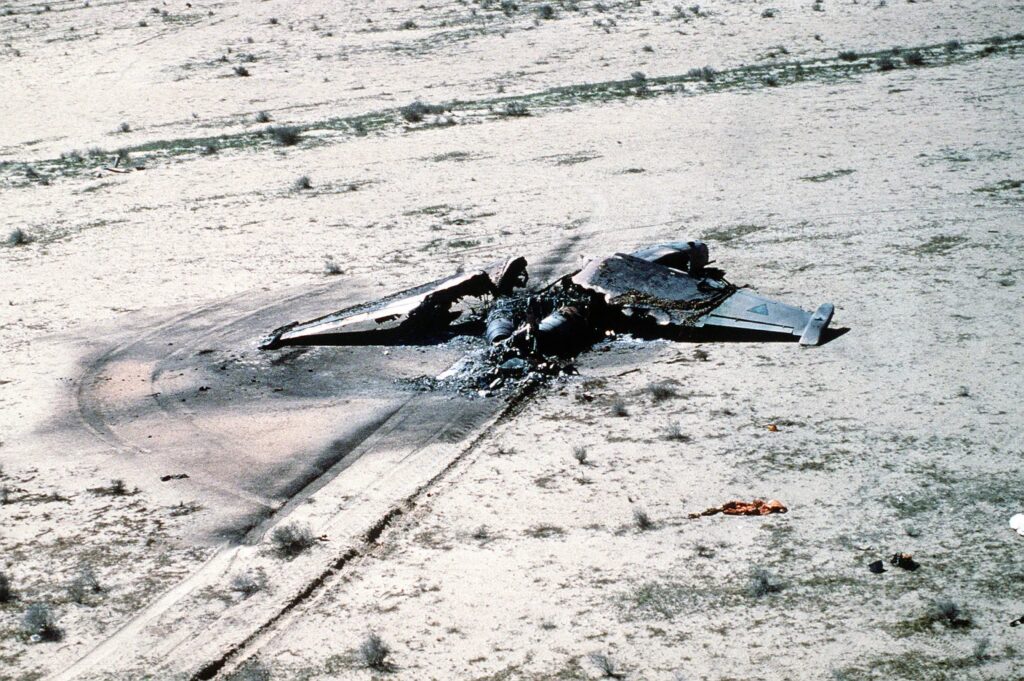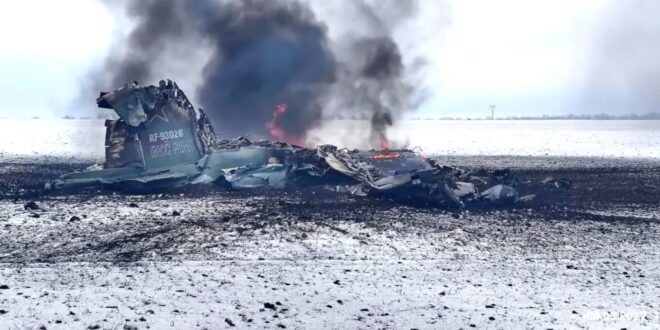Ukrinform reports that according to the press service of the Ukrainian Airborne Assault Troops, one of their paratroopers downed a Russian Su-25 “Frogfoot” on July 29th, 2022. The press service report reads:
“Yesterday, July 29, in Donetsk region, a serviceman with the air defense unit of the 25th Separate Airborne Brigade of the Sicheslav Airborne Assault Division shot down with an Igla MANPADS system another Su-25 armored attack aircraft operated by the Russian occupiers.”Thus far in the war in Ukraine, we’re told by the source above that the Ukrainian 25th has downed a total of seven helicopters, seven drones, and 15 Russian fighter planes. Ukrinform reported earlier that as recently as July 24th, the 25th Separate Airborne Brigade downed another Su-25. The unit commander claims that after downing the aircraft, they have captured two of their aircrew.
The Igla used to bring down the jet is a Russian/Soviet surface-to-air missile (SAM). The Soviets first used these man-portable air defense systems (MANPADS) in the early 80s. The latest variant is the 9K338 Igla-S, known to NATO forces as the SA-24 Grinch.
The SA-24 has a range of about 6 km, and the warhead has an impact/proximity fuse causing it to detonate directly on impact or if it passes within about a meter and a half of the target. It is designed for use against tactical aircraft (fixed and rotary wing), drones, and cruise missiles. In addition to the Russians and Ukrainians, this weapon is used by Iraqi, Brazilian, Venezuelan, and Libyan forces. The warhead type is high explosive (HE) fragmentation, and it travels to its intended target at Mach 1.6.
This crudely shot video purports to show 2 Su-25 Frogfoot aircraft shot down over Ukraine. It was posted mid-March 2022—video footage courtesy of YouTube and VCompare.
Work on the Su-25 began in the Sukhoi Design Bureau in 1968 when they sought to design a new close air support aircraft. Some say that the Su-25 is roughly analogous to the venerable A-10 “Warthog” because of its intended role and the fact that it was designed to withstand a good amount of damage. She features an all-titanium-armor cockpit and an armored canopy. The fuel tanks have a polyurethane foam filling, and the aircraft features fire-resistant control rods intended to survive strikes from 12.7mm rounds. At the rear of the cockpit is a 6 mm thick solid steel headrest.
As mentioned above, NATO refers to her as the “Frogfoot.” She flew her maiden flight on February 22nd, 1975, and approximately six years later entered into official service with the Soviet Air Force as part of their Separate Attack Aircraft Regiments (SAAR).
It is a single-seat, twin-engine aircraft, but a two-seat variant (Su-25UB) has been developed for training new pilots.
The last Frogfoot was built in 2017, but many remain in service worldwide, mainly in the Russian, Ukrainian, North Korean, and Peruvian Air Forces. They saw extensive service in the Soviet’s war in Afghanistan and then again by Iraq in their eight-year-long war with Iran in the 1980s. At the beginning of the Persian Gulf War in 1991, most of those in the Iraqi Air Force was either destroyed or flown to Iran.
The Russians continued using the aircraft during their recent operations in Syria and their invasion of Ukraine earlier this year.

The current conflict in Ukraine hasn’t become known as a massive air war, but that doesn’t mean that Ukraine isn’t asking for more modern aircraft. Newsweek reports that in the Donetsk region, Ukrainian pilots “continue to control the airspace, forcing the enemy to refuse to approach our borders.” They also say that Kyiv is prodding the US and our allies to provide them with modern fighter jets and the training to operate them.
In a Pentagon briefing on Friday, a US military official told the press we would help keep their MiG and Sukhoi jets airworthy, pending a decision on whether to send more modern fighters.
 Eurasia Press & News
Eurasia Press & News



